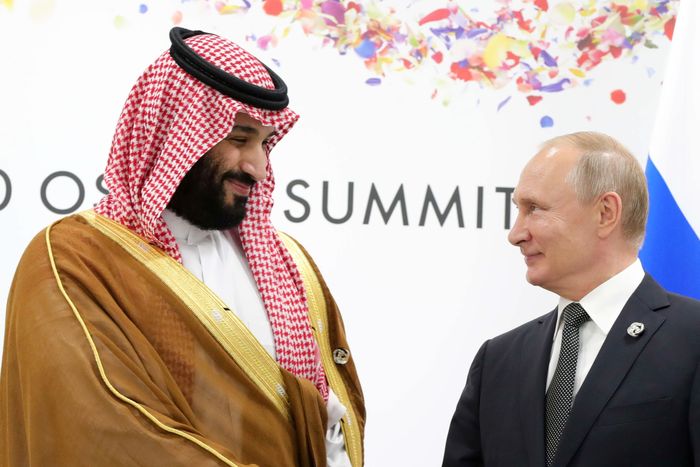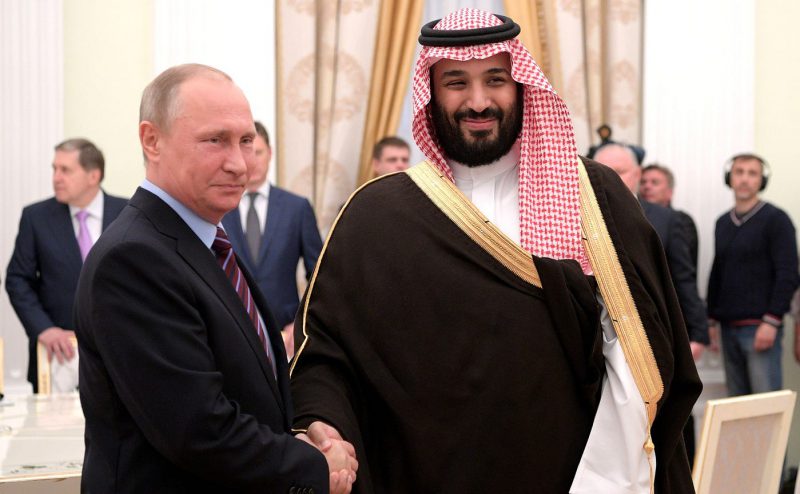Following its entry into the BRICS alliance, the Saudi Crown Prince Mohammed bin Salman Al Saud met with Russian President Vladimir Putin to discuss bringing an end to the US dollar. Indeed, both leaders met to engage in overarching discussions that undoubtedly included the bloc’s ongoing de-dollarization efforts.
CNBC reported that the two leaders sought to “strengthen relations” amid increased collaborations. Moreover, amid the increase in Western sanctions on Russian currency, that will include the promotion of local currency in increased bilateral trade. As the two met in a rare visit to Saudi Arabia for Putin, it could have massive implications geopolitical, and on the greenback.
Also Read: BRICS: 20 New Countries Apply to Join Alliance in 2024
Putin Visits Saudi Arabia Amid De-Dollarization Efforts
For the past several months, the BRICS bloc has pushed its de-dollarization plans into overdrive. Indeed, throughout the alliance, overriding the presence of the greenback within international trade has become massively important. Now, amid Russia’s President’s first visit to the Middle East since 2022, those efforts are likely to be front and center.
Saudi Crown Prince met with Russia’s Vladimir Putin this week, as the two discussed bringing an end to the US dollar. Specifically, the bilateral relationship between the two countries was a focus. However, amid sanctions placed on Russia, operating away from the US dollar was certainly a key part of the dialogue.


Also Read: BRICS: Russia Announces Special Focus on Alliance in 2024
Although Saudi Arabia has had ongoing relations with the United States, it refused to adopt Western sanctions that were put in place at the start of the Ukraine conflict. Subsequently, the nation joined Russia’s BRICS bloc at its 2023 annual summit. Altogether, this led to a growing relationship between both nations.
The BRICS alliance has not been shy about its desire to lessen international reliance on the US dollar. Moreover, Saudi Arabia’s inclusion in the bloc, and its burgeoning relationship with Russia, could indicate its adherence to that plan. Additionally, its presence and influence would be vital in the advancement of that very plan.





